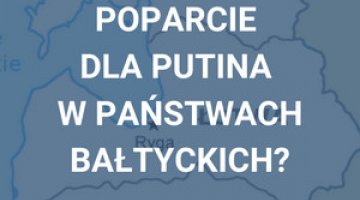Lithuania: a step towards allowing the original spelling of non-Lithuanian surnames
On 18 January, the Lithuanian parliament adopted a law on spelling of surnames in identity and civil-status documents at the third vote. The new law was supported by 82 MPs (most of them from the ruling coalition), with 37 opposed ( a grouping of the Lithuanian Farmers and Greens Union) and 3 abstensions. According to the new law, documents confirming the identity of Lithuanian citizens will be spelled using the Latin alphabet, which means that the characters "q", "x", "w" as well as the digraphs "cz", "sz" and "nn" may be used. However, the use of diacritical marks from other languages was not allowed – letters such as "ł", "ć" (from Polish) will not be used, nor will "ä", "ö", "å". This problem was raised during the parliamentary debate by EAPL–CFA, however, the amendment proposed by this party was not accepted.
The adoption of the law means that the surnames of Lithuanian citizens of foreign origin (including Polish) do not need to be written in Lithuanian, as has been the case so far, but in their original form. For example, a person whose surname in local documents was previously spelled "Malinovski" will be able to use the form "Malinowski", and "Lavrynovič" ("Ławrynowicz" in Polish) may now be "Lawrynowicz". The new law is still awaiting the approval of President Gitanas Nausėda.
Commentary
- Significant support for the law testifies to the gradually evolving mentality of the country's elite and society. The approach claiming that the language is the supreme value in Lithuanian identity is becoming more flexible. The decision of the parliament was also influenced by the fact that the problem of the original spelling of surnames has been affecting Lithuanian women in recent years. Emigration to the west and immigration have resulted in a growing number of mixed marriages who will become the main beneficiaries of the new legislation.
- There is no certainty that the head of state will support the proposed law. Over the past year, Nausėda has been appealing to the more conservative part of society. In public statements, he has claimed to be in favour of a solution where the original spelling of the name and surname would be additional and placed on the reverse of the passport. This would mean that the Lithuanian form would still apply.
- The adopted law does not include Polish diacritics, thus it does not fully meet the expectations of Lithuanian Poles. At the same time, however, it marks a significant change in the approach of the authorities to the postulates of, among others, the Polish minority and may positively influence the atmosphere of the mutual relations The original spelling of surnames has been one of the cracks in relations between the two countries for 30 years – especially after 2010, when the parliament rejected a similar bill just before the Polish president's visit.





